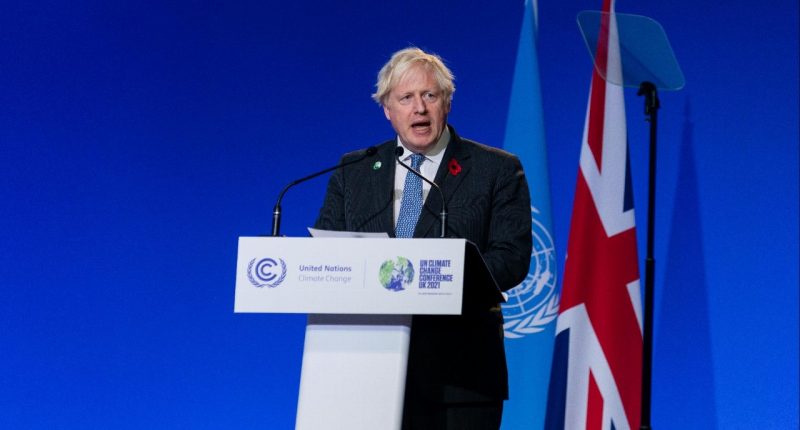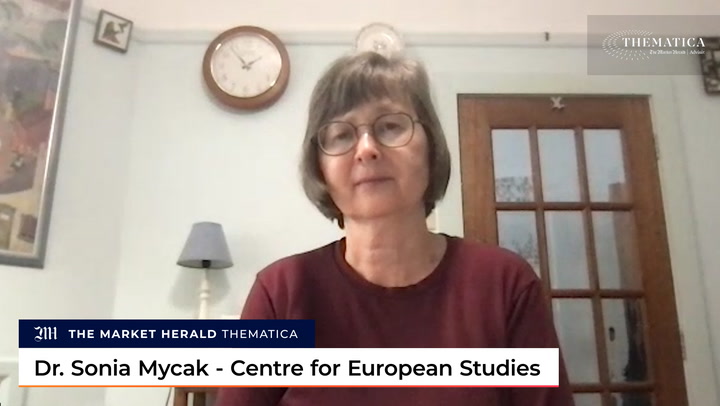- More than 100 global leaders pledge to halt and reverse deforestation and land degradation by the end of the decade
- The Glasgow Leaders’ Declaration on Forest and Land Use will cover forests totalling more than 13 million square miles
- According to the World Resources Institute, the world lost 258,000 square kilometres of forest — an area larger than the United Kingdom — in 2020 alone
- Under Monday’s agreement, 12 countries have offered to provide £8.75 billion (A$15.87 billion) in public funding to assist developing countries manage deforestation
- COP26 aims to cap global warming at 1.5°C above pre-industrial levels, and scientists say forests are vital to reaching that goal
At the COP26 climate talks in Glasgow on Monday, more than 100 global leaders pledged to halt and reverse deforestation and land degradation by the end of the decade.
The joint statement was backed by the likes of Brazil, Indonesia and the Democratic Republic of Congo, which together account for 85 per cent of the world’s forests.
Also included among the signatories are Australia, New Zealand, the United Kingdom, and the United States.
According to a statement from UK Prime Minister Boris Johnson’s office on behalf of the leaders, the Glasgow Leaders’ Declaration on Forest and Land Use will cover forests totalling more than 13 million square miles.
“We will have a chance to end humanity’s long history as nature’s conqueror, and instead become its custodian,” Mr Johnson said.
Forests absorb roughly 30 per cent of carbon dioxide emissions, according to the World Resources Institute (WRI), taking them out of the atmosphere and stopping them from warming the earth.
This natural buffer, however, is rapidly disappearing. Based on data from the WRI’s deforestation tracking initiative Global Forest Watch, the world lost 258,000 square kilometres of forest — an area larger than the United Kingdom — in 2020 alone.
Monday’s agreement expands on a similar one signed by 40 countries as part of the 2014 New York Declaration of Forests and goes much further in laying out the resources to reach that goal.
According to the agreement, 12 countries have offered to provide £8.75 billion (A$15.87 billion) in public funding between 2021 and 2025 to assist developing countries in efforts such as restoring degraded land and tackling wildfires.
Another £5.3 billion (A$9.61 billion) will be provided by more than 30 private sector investors, including Aviva, Schroders and AXA. These investors, which collectively represent US$8.7 trillion (A$11.56 trillion) in assets under management, have also agreed to stop investing in activities linked to deforestation by 2025.
COP26 aims to cap global warming at 1.5°C above pre-industrial levels, and scientists say forests and so-called nature-based solutions are vital to reaching that goal.
Forests, jungles and woodlands have removed around 760 million tonnes of carbon dioxide every year since 2011, according to the Biomass Carbon Monitor project backed by data analytics firm Kayrros and French research institutions, offsetting roughly eight per cent of carbon dioxide emissions from fossil fuels and cement.
“Our biosphere is really helping bail us out for the time being, but there is no guarantee those processes will continue,” said Oliver Phillips, an ecologist at the United Kingdom’s University of Leeds.
Closer to home, the Western Australian government decided in September to safeguard the state’s native forests from 2024, ensuring the survival of at least 400,000 hectares of karri, jarrah, and wandoo forests.








